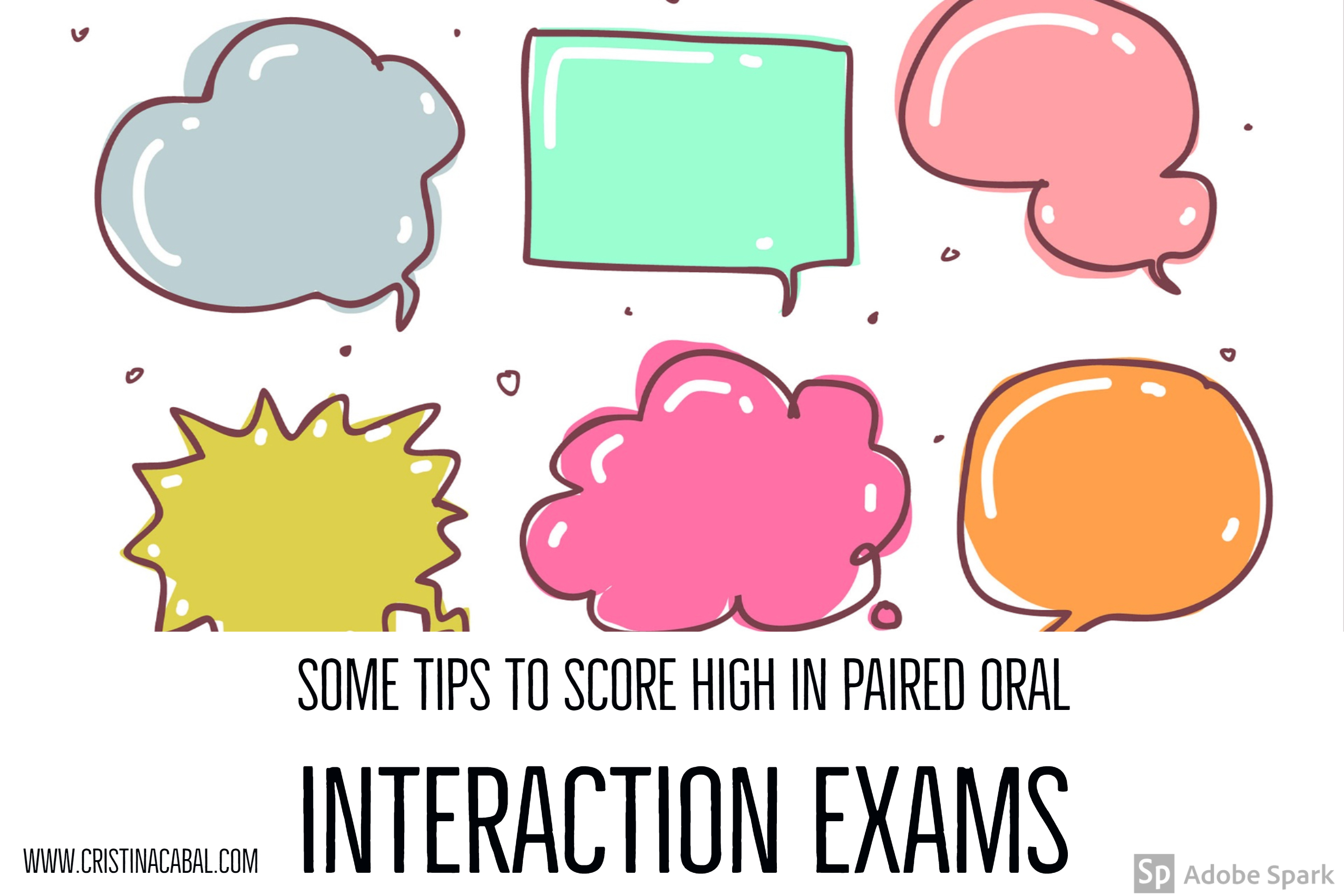March means the clock is ticking and my students are beginning to feel the pressure of getting ready to take standardized exams. Not an easy thing to do when it comes to taking oral exams and the pressure and the tension can sometimes be overwhelming.
The most important tip I could probably give you is practice, practice and practice. Remember the saying “Practice makes perfect”

Let’s start ♥
What you need to know about this part
- In this part, two or three candidates will be asked to speak together. The examiner will give you a task and there will be some prompts to talk about. You’ll need to express your own opinion and also ask for your partner’s opinion, you will need to share ideas and interact discussing some of the points written on your worksheet.
- You’ll have 1 or 2 minutes to look at the task, but you won’t be able to take notes. Your conversation should last about 5 or 6 minutes.
- You need to perform well in terms of Interactive Communication. You need to ask questions, ask for opinion, suggest…etc and link your contribution to what the other candidate has said.
Tips
- This is an interaction between two or three students, so you might want to think of the questions you want to ask your partner to ask for his opinion or preference.
- Remember that this is not a monologue. You should speak and address your partner, not the examiner.
- Be prepared to start a discussion with your partner, as well as respond to what they
- have to say.
- If you make a mistake, correct it. Obviously, it’s better not to make any mistakes but if you do, correct it and carry on talking.
- Remember this is not a listening exam, it is a speaking exam. Speak as much as possible when it’s appropriate.
- Be sensitive to turn-taking. The other candidate has to speak too. You need to find a balance between speaking too little and too much.
- There are no right or wrong opinions. We are assessing language here.
Do's
- Think about vocabulary you might want to use
- Don’t forget that it is important to use a wide variety of structures.
- Keep in mind you’ll need to state your opinion elaborating on it, ie, giving reasons
- Don’t just talk about a single idea. You won’t probably have to talk about all the points suggested in the worksheet, but you should not focus on only one. You need to move from one idea to another.
- Just remember to speak clearly so that both the interlocutor and assessor can hear you
- Remember your pronunciation should always be intelligible.
- Make sure you take every opportunity to speak.
- Listen to your partner carefully and link what you say with what the other candidate says
- If you are not sure what to do, ask for clarification.
Don't
- Learn long answers or speeches by heart.
- Don’t leave long or frequent pauses.
- Don’t interrupt your partner when he is speaking,
- Don’t give short answers or one-word answers. Elaborate on your ideas.
- Don’t talk to the examiner. Talk to the other candidate.

Some functional language you might want to use:
Asking for opinion: what do you think about …? What are your thoughts on…? What about you? How about you? Do you agree?
Suggestions: How about moving on to….? Let’s discuss a different one now. Let’s talk about the advantages now.
More functional language here
Examples
- See an example below
- Oral Interaction Exams from EEOOII Castilla-La Mancha. Here
- Video of a mock exam explaining what to do and not to do in an oral interaction exam.
I am a huge fan of Simple English Videos and I have found this one below that might give you an idea or what to do and what not to do in the exam.
